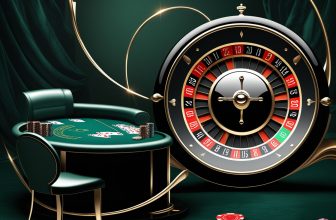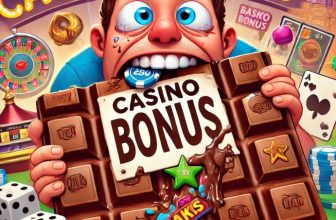Mathematics and gambling get along well together. Most new players are sure that any result can be calculated mathematically, which means that the gamer has a chance to make a profit after analyzing the "mechanics" of any gambling entertainment and developing an appropriate algorithm that will help beat the casino. Is this statement true? Let's talk about the mathematics of gambling in more detail!
Casino Profit: A Reality That Is Not Disputed!
We should immediately warn all users who believe in the power of numbers: mathematics has immutable laws that really help to make a profit! However, do not rejoice prematurely, since we are talking about the profit of the owners of gambling establishments, and not the earnings of their visitors. Manufacturers of any software develop complex mathematical algorithms that create advantages for gambling houses, and not for players.
The total profit of the global gambling industry is quite comparable to the income of drug cartels and arms dealers. Billions of dollars are circulating in this sphere and gradually settle in the conditional wallets of gambling tycoons and gambling industry scammers. Any professional player knows that the advantage of even the most reliable and honest casino is undeniable. The client always ends up at a loss if he spends a lot of time in the gaming room. This is true for both land-based casinos and online clubs. Subtle calculation, probability theory and random number generators make it easy to profit from the pernicious passion of gambling gamers.
Mathematical Laws and Gambling
Historians who study such entertainment claim that the first analysis of gambling based on mathematical laws was made about 500 years ago. The most interesting thing is that its author was not a mathematician, but a physicist D. Cardano. Around 1526, he analyzed the game of dice. You won’t believe it, but he managed to discover the foundations of probability theory. Later, Einstein used this knowledge, who formulated the postulates known today in more detail and precision.
If you think that scientists were and continue to be skeptical about such calculations, you are very much mistaken. At least two famous scientists tried to derive mathematical patterns that would allow them to calculate the results of gambling.
- Galileo Galilei studied the game of dice in some detail at the end of the 16th century, continuing what D. Cardano had begun.
- Blaise Pascal (famous physicist and mathematician) became the founder of mathematical analysis in the mid-17th century. By the way, he is considered one of the inventors of the game that later turned into the famous roulette.
To sum it up briefly, it can be noted that even the best minds of humanity have failed to develop mathematical laws that help gambling enthusiasts win. However, there are games in which mathematics is still useful. What are we talking about? It's very simple!
Mathematics: there is a chance to win!
Let's start with a short list of entertainments in which avid gamers try to use mathematics:
- various lotteries;
- one-armed bandit type slot machines;
- roulette;
- card games (blackjack, poker, etc.).
The bad news is that a 100% positive result for gamblers is impossible. However, there is a silver lining in this barrel of tar. In some games, you can use mathematics, which will really give you an advantage over your opponents. As you can easily guess, these are some card games.
When playing blackjack or poker, some players count the cards that have already been played. Such "counters" pose a real threat to land-based casino owners (this does not work online, since other rules of the game are used there), so many of them have been banned by club owners from visiting their establishments. In addition, new points are added to the rules of card games, which negate all the advantages of players with phenomenal memory. However, they successfully use their skills not in casinos, but in poker tournaments, bridge, etc. Among avid card players, there are enough millionaires who have made a profit thanks to excellent memory, the ability to bluff in time, and a lucky coincidence.
To sum it up, it is worth remembering that you should spend time in a casino for pleasure, not for profit. This is the only way to protect yourself from major losses and the development of gambling addiction.







